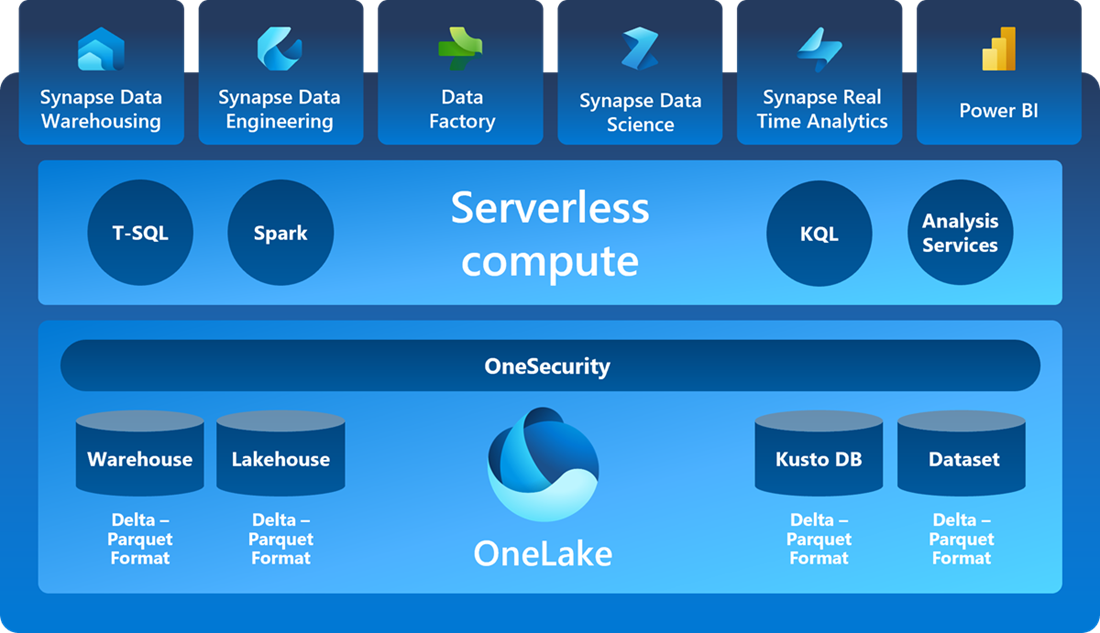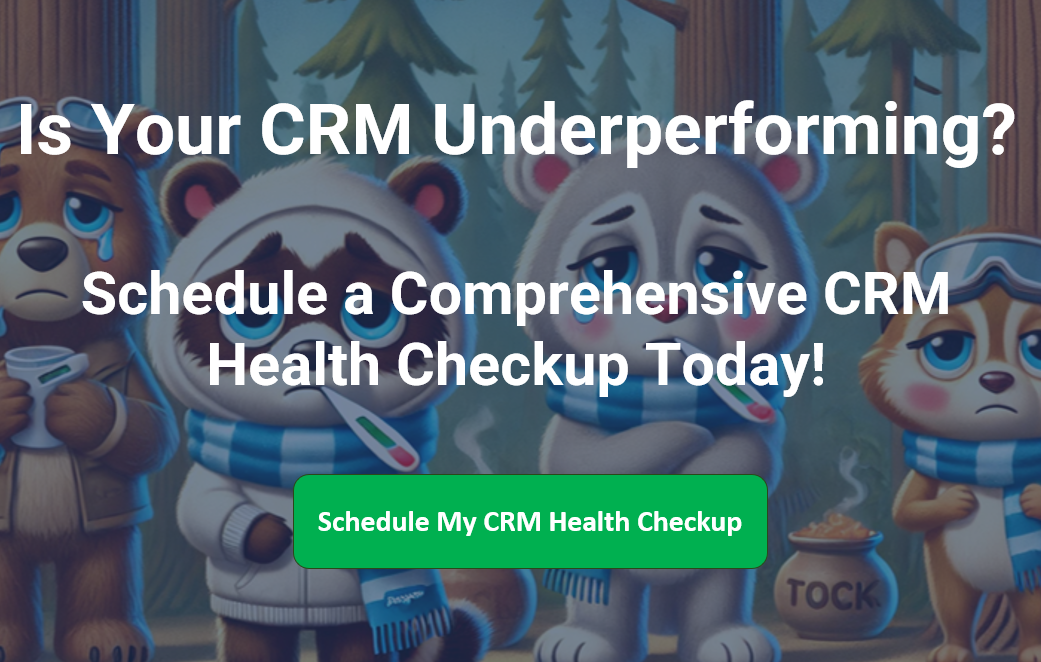Is Your CRM Sick? 5 Symptoms Showing It’s Time to Fix Your CRM
Maintaining a healthy CRM is crucial for effective customer management and business growth. A well-functioning CRM system ensures that customer data is accurate, up-to-date, and easily accessible, empowering your team to provide exceptional service and make informed decisions. Without regular maintenance, your CRM can become cluttered and inefficient, leading to missed opportunities, dissatisfied customers, and, ultimately, hindered growth. Even if you think you have advanced systems, it may be time to fix your CRM.
Over time, issues can arise that may affect the system’s performance, diminishing its ability to support your business effectively. Identifying these problems early on is crucial to prevent more significant issues.
This blog highlights five common symptoms BrainSell regularly sees with prospects and clients’ CRM instances – including users of Salesforce and HubSpot – indicating it’s time to fix your CRM. Recognizing these warning signs can help you take proactive measures to fix your CRM and keep your business thriving.
1) Decreased User Engagement
One of the first signs that your CRM may be sick is a decrease in user engagement. Your team relies on the CRM system to manage customer interactions and track important data, but if they are not using it regularly or effectively, it could indicate a problem.
Low user engagement could be caused by various factors, such as an outdated interface that may not appeal to modern users, a lack of training that leaves users unsure of how to use the platform effectively, or technical difficulties like slow load times and frequent errors that frustrate and deter users. Additionally, insufficient customer support and relevant user manuals can diminish user interest and interaction.
Conducting regular surveys and seeking feedback from users can help pinpoint any issues and address them promptly. This approach identifies potential problem areas and provides valuable insights into user preferences and needs, enabling continuous improvement and a better overall user experience.
2) Data Inaccuracies & Duplicate Records
Data inaccuracies and duplicate records are common problems that can significantly impair your CRM system’s effectiveness. Inaccurate data can lead to misguided decisions, poor customer service, and missed opportunities. Duplicate records, on the other hand, can clutter your CRM, causing confusion and inefficiencies in your workflows.
These issues often arise from manual data entry errors, inconsistent formatting, or inadequate system integrations. Manual data entry can lead to typos and inaccuracies, while inconsistent formatting can cause confusion and misinterpretation of data. Additionally, inadequate system integrations can result in data silos and hinder effective communication between different departments or software solutions.
To combat these problems, it’s crucial to establish strict data entry guidelines, implement data validation tools, and regularly clean up your database. Ensuring data accuracy and eliminating duplicates will help maintain the integrity of your CRM, enabling your team to work more efficiently and make well-informed decisions.
3) Poor Reporting and Analytics
A critical symptom of a sick CRM system is poor reporting and analytics. A healthy CRM should provide valuable insights to help drive strategic business decisions and improve customer interactions. When your CRM’s reporting and analytics capabilities are compromised, it can hinder your ability to understand customer behavior, track sales performance, and identify market trends. This lack of insight can lead to ill-informed decisions that may negatively impact your business growth and customer satisfaction.
Poor reporting can obscure critical performance metrics, making it hard to measure the success of sales campaigns or customer service initiatives. If the data analyzed is inaccurate or incomplete, conclusions drawn from these reports can be misleading. This could lead to allocating resources to unproductive strategies, potentially causing financial losses.
Impaired analytics can also weaken your ability to personalize customer interactions. Personalization enhances the customer experience by showing you understand their needs and preferences. Creating meaningful, personalized experiences is challenging without accurate data and robust tools. This can result in generic, less effective interactions, diminishing customer loyalty and trust.
Ensure your CRM system’s reporting and analytics functionalities are regularly reviewed and optimized to avoid these pitfalls. This will empower your team with the insights to make informed decisions and forge more robust, personalized customer relationships.
4) Your Integrations Don’t Fix Your CRM
A CRM’s integrations, or lack thereof, with other business tools can significantly hamper operational efficiency. Modern businesses typically use various software solutions for email marketing, sales, customer support, and project management tasks. When these tools are not seamlessly integrated with your CRM, it can lead to a fragmented approach to customer management.
Poor integration results in data silos, where vital information is stored in separate systems, making it difficult for teams to access the correct data at the right time. This can slow down workflows, as team members spend extra time manually transferring data between systems or searching for necessary information. The lack of real-time data synchronization also means that any updates or changes are not promptly reflected across all platforms, leading to inconsistencies and potential errors.
For example, if your CRM does not integrate with your email marketing software, customer data collected through email campaigns may not automatically update in your CRM. This disconnect can result in outdated customer profiles, missed opportunities for targeted marketing, and inefficient campaign success tracking.
To mitigate these issues, it is crucial to choose a CRM system that supports integrations with the essential tools your business relies on. This ensures that all customer data is centralized, enabling your team to operate cohesively and deliver a seamless customer experience. Regularly reviewing and updating integrations can improve system efficiency and maintain synchronization across all business functions.
5) Your Solutions Have Become Hurdles
Another indication that your CRM is unwell is when the tools and solutions you initially implemented become obstacles. The more tools you try to implement into your tech stack, the more complicated your CRM’s usage becomes, creating data risks and making it difficult to scale operations. Complicated processes implemented alongside these tools can overwhelm users, decreasing adoption and engagement. Additionally, if these tools are not correctly aligned with your business processes, they may introduce security vulnerabilities, putting your data at risk.
For instance, if your tech stack doesn’t seamlessly integrate with your CRM, team members may resort to workarounds or external systems, leading to data discrepancies and security issues. Moreover, as your business grows, these unsuitable tools can become bottlenecks, limiting your ability to handle an increasing volume of data and interactions efficiently and, therefore, your ability to scale.
To address this, it is essential to regularly evaluate your CRM tools to ensure they meet your evolving needs and are seamlessly integrated into your workflows. Opt for scalable, user-friendly, and secure solutions, enabling your business to grow without friction. This proactive approach will help you fix your CRM that supports your long-term goals.
It’s Time to Fix Your CRM
Maintaining a healthy CRM system is crucial for achieving operational efficiency, making informed decisions, and fostering strong customer relationships. Regularly cleaning your database, optimizing reporting and analytics, ensuring seamless integrations, and using the right tools can keep your CRM functioning effectively.
By proactively addressing these common issues, you can transform your CRM from a potential hurdle into a powerful ally that drives business growth and enhances customer satisfaction. Remember, an optimized CRM is not just about managing customer information—it’s about empowering your team to deliver superior service and achieve your strategic goals.
If you recognize any of these signs in your CRM system, it’s time to act. Consulting with experts or scheduling a CRM audit can provide valuable insights and actionable recommendations. Our team of CRM specialists is ready to help you optimize your system, ensuring it serves your business needs effectively.
Don’t let CRM issues hold you back—reach out to us today to start the journey towards a more efficient, data-driven, and customer-centric operation. Schedule your CRM health checkup now and unlock the full potential of your customer relationship management.
Author Bio
Brian Anderson
Brian Anderson joined BrainSell as the content marketing manager but unknowingly became our in-house troubadour as well. Brian’s ability to generate high-quality content and continue to develop the BrainSell voice is unmatched.
View Posts






